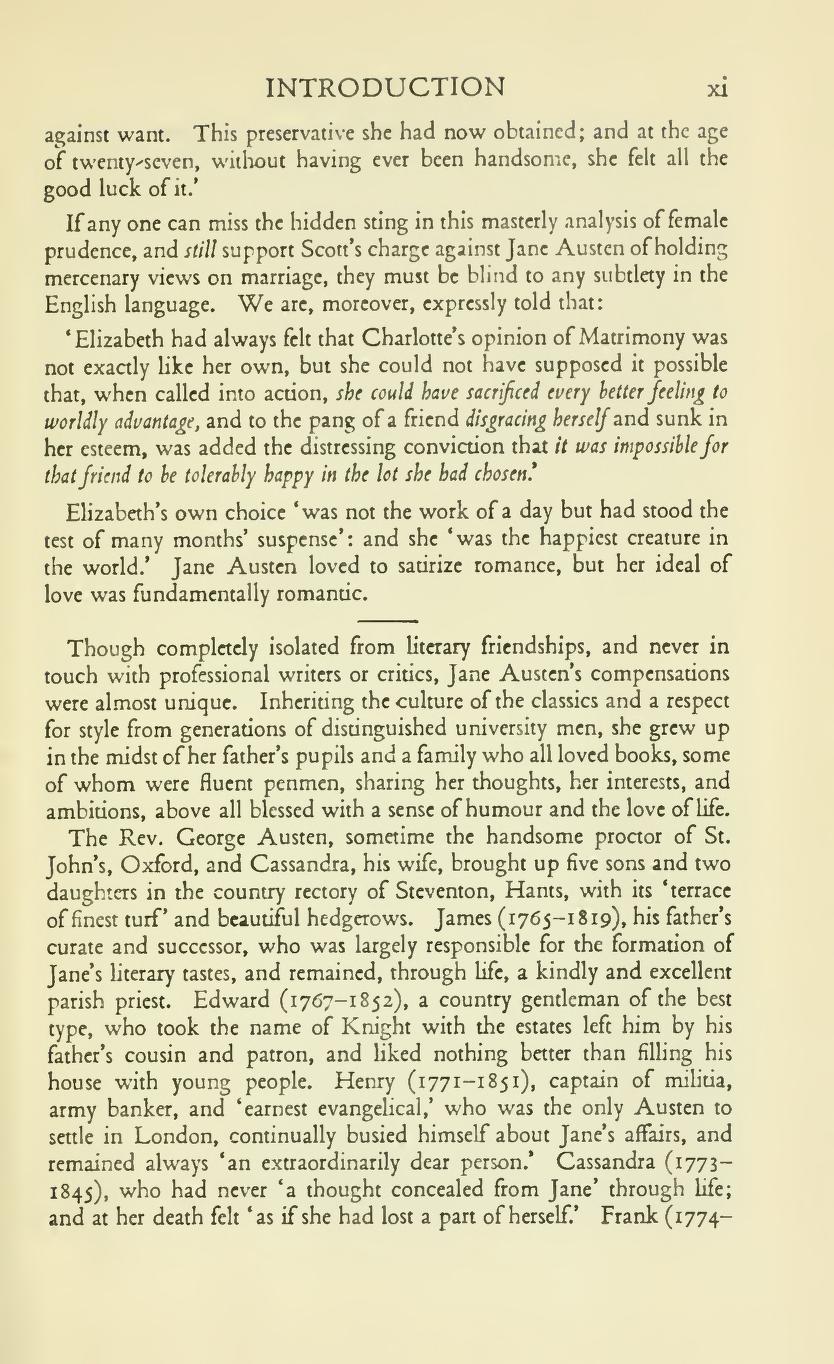 ............prev.....................next
............prev.....................next{{prxprf011.jpg}} || INTRODUCTION xi
against want. This preservative she had now obtained; and at the age
of twentyscven, without having ever been handsome, she felt all the
good luck of it.'
If any one can miss the hidden sting in this masterly analysis of female
prudence, and still support Scott's charge against Jane Austen of holding
mercenary views on marriage, they must be blind to any subtlety in the
English language. We are, moreover, expressly told that:
'Elizabeth had always felt that Charlotte's opinion of Matrimony was
not exactly like her own, but she could not have supposed it possible
that, when called into action, she could have sacrificed every better feeling to
worldly advantage, and to the pang of a friend disgracing herself and sunk in
her esteem, was added the distressing conviction that it was impossible for
that friend to be tolerably happy in the lot she bad chosen.'
Elizabeth's own choice 'was not the work of a day but had stood the
test of many months' suspense': and she 'was the happiest creature in
the world.' Jane Austen loved to satirize romance, but her ideal of
love was fundamentally romantic.
Though completely isolated from literary friendships, and never in
touch with professional writers or critics, Jane Austen's compensations
were almost unique. Inheriting the culture of the classics and a respect
for style from generations of distinguished university men, she grew up
in the midst of her father's pupils and a family who all loved books, some
of whom were fluent penmen, sharing her thoughts, her interests, and
ambitions, above all blessed with a sense of humour and the love of life.
The Rev. George Austen, sometime the handsome proctor of St.
John's, Oxford, and Cassandra, his wife, brought up five sons and two
daughters in the country rectory of Steventon, Hants, with its 'terrace
of finest turf' and beautiful hedgerows. James (1765-1819), his father's
curate and successor, who was largely responsible for the formation of
Jane's literary tastes, and remained, through life, a kindly and excellent
parish priest. Edward (1767-1852), a country gentleman of the best
type, who took the name of Knight with the estates left him by his
father's cousin and patron, and liked nothing better than filling his
house with young people. Henry (1771-1851), captain of militia,
army banker, and 'earnest evangelical,' who was the only Austen to
settle in London, continually busied himself about Jane's affairs, and
remained always 'an extraordinarily dear person.' Cassandra (1773-
1845), who had never 'a thought concealed from Jane' through life;
and at her death felt 'as if she had lost a part of herself.' Frank (1774-
[[xi]]